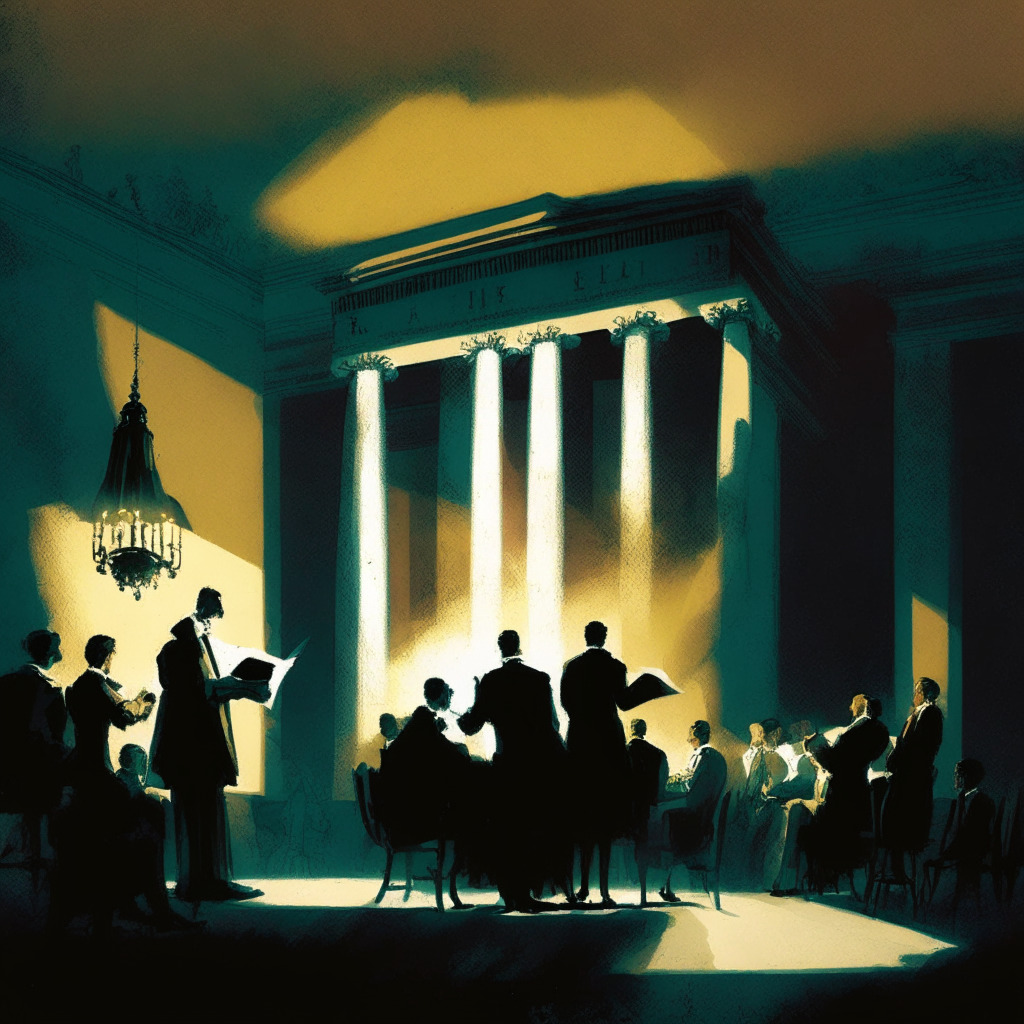The House Financial Services Committee has made substantial progression in the crypto domain, paving the way for bills intended to solidify legal framework and address blockchain-related dilemmas. Despite the distress from the recent FTX saga casting its shadow, the majority of lawmakers buoyed up both H.R. 4763, the Financial Innovation and Technology for the 21st Century Act, and H.R. 1747, the Blockchain Regulatory Certainty Act, progressing them to the full House of Representatives.
An intriguing opposition to these advancements surfaced within the committee. A group of committee members, inclusive of both Republicans and Democrats, opted not to back the suggested market structure. They cast apprehensions on a clause that would hand over enhanced power to the Commodity Futures Trading Commission (CFTC). Concerns also hovered around whether the bill could potentially undermine robust consumer protections instituted by the venerable United States securities laws, and risk diminished protection for US investors against fraudulent activities.
However, the committee’s chair, Rep. Patrick McHenry (R-N.C.), maintained a supportive stance, emphasizing the importance of such legislation in preventing U.S.’s drawback in crypto regulation as compared to other nations. Republicans advocating for the bill asserted that recent approval of an additional $120 million in funds by the Agriculture Committee could equip the CFTC to perform more efficiently.
Democrats considered it troubling that the law might grant the CFTC, which is perceived to be lenient towards crypto companies compared to the Securities and Exchange Commission (SEC), more power to govern the digital assets space without an increase in its resources. Circumspect views continued with Democrats fearing that this power imbalance could be manipulated to facilitate future frauds.
While Democrats were skeptical, Republicans warned against stalling the bill, appreciating the potential clarity it might bring to the crypto entity. They maintained that the crypto framework would moderate the SEC’s harsh enforcement on the digital assets industry, persuading companies to stay on U.S. soil rather than moving to more crypto-friendly jurisdictions.
As this series of events unfolds in the House, the Senate concurrently added anti-money laundering provisions for the crypto industry to a crucial defense bill. The National Defense Authorization Act now includes an amendment that pushes for the creation of “a risk-focused examination and review process for financial institutions” to evaluate specific crypto-related risks.
In the end, the crypto community awaits clarity regarding which projects, tokens, and activities are overseen by which agencies. As debates continue among lawmakers, it’s clear that developing a unified legal framework for crypto and other blockchain-related matters is a path fraught with multiple perspectives and concerns.
Source: Coindesk




